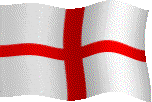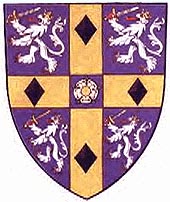Encyclopédie Marikavel-Jean-Claude-EVEN/Encyclopaedia/Enciclopedia/Enzyklopädie/egkuklopaideia

England Bro-Saoz |
Chester-le-Street Congangis |
i
Durham |
| pajenn bet digoret e 2003 | page ouverte en 2003 |
|
* forum du site Marikavel : Academia Celtica |
dernière mise à jour 23/02/2015 13:26:16 |
![]()
|
Définition : Commune d'Angleterre; comté de Durham, sur la rivièere Cong Burn |
|
![]()
|
Extrait de la carte Ordnance Survey : Map of Roman Britain. |
![]()
|
Histoire; Archéologie : Le territoire dépend de la tribu *** |
![]()
|
Étymologie : * Ekwall : (Cunca-, Cunceceastre c 1050 HSC, Cestra c 1160 Hexh, Cestria in Strata 1400 Sturt. Soc. 9). The place os on a roman road. The el. Cunca-, Cunce- may represent a hill-name identical with Cannock, Conock and found also in Consett. ---------------- * Rivet & Smith : CONCANGIS SOURCES : - Ravenna 10717 (= R&C 141): COGANGES, var. CEGANGES - ND XL9 (pictura): CONCANGIOS, var. CONCAGIOS - ND XL24 (text) : Praefectus numeri vigilum, CONCANGIOS - Inscription: CIL VII. 1234, a tile from Binchester inscribed N CON, which Richmond in Arch. XLIII (1949), 29, thought might well stand for N(UMERUS) CON(CANGIENSIUM) The form of the name is unsure, but it certainly had Con-Cang-. Ravenna's form, its variant and the variant of ND without n show that as often this letter was abbreviated by a tilde, this then being overlooked in a subsequent copy. In the ending there is no authority at ail for the -ium which seems to be traditional. Ravenna and ND agree in showing a plural. Ravenna has no other form in -es among its British names, but it has many in fossilised locative form -is (see ANICETIS), including those of several forts in the north-east ; it is therefore probably best to restore Ravenna's name to -is (more classically -iis) and to regard ND's also as a mistake for this or perhaps as a genuine accusative. DERIVATION. This is a difficult name. It can have nothing to do with N. Welsh Ceangi, itself a dubious form, although Seeck associated them when editing ND and Holder i. 879 followed him. The ending -ang- might just possibly represent the -anc- suffix of Habitancum, but it is then hard to discern what the base might be. The best possibility is an association with forms studied by H. Birkhan in Germanen und Kelten. . . (Vienna, 1970), 426-31. Noting personal names such as Congonnus, Congonius, Conconnetodubnus, he identifies a Celtic root *konkos, perhaps present in the name of the Concani people and their place Concana (Kogkana, Ptolemy II, 6, 50) in N. Spain, with 'horse' associations perhaps of a totemic kind (Horace Odes III, 4, 34); and a further Celtic *kankos 'horse' . Birkhan does not bring the present name into the discussion, but it could well be relevant, even though isolated on the British map. Since the root cited seems to be well represented in Celtic personal names but has left (apparently) no descendants in the modem Celtic languages — they abound in Germanic, as listed by Birkhan — the association cannot be wholly affirmed; but it may be suggested that Concangis was originally an ethnic name, perhaps 'horse-people' either in a literal or totemic sense. IDENTIFICATION. The Roman fort at Chester-le-Street, Durham (NZ 2750). Note. The name survived for a long time. Ekwall in EPN (Chester-le-Street) notes that it was Conceceastre c. 1050; his suggestion that the first element is Cunca-, Cunce- and may represent a hill-name derived from British *cuno- 'hight' is not supported by the Romano-British name, and the existence of Britrish *cuno- has been challenged (see CUNETIO). The place is on the Cong Burn, which presumably still preserves part of the ancient name. |
![]()
|
Sources : * Eilert EKWALL : The Concise Oxford Dictionary of English Place-names. Clarendon Press. 1980. * A.L.F RIVET & Colin SMITH : The Place-names of Roman Britain. Batsford Ltd. London. 1979 |
![]()
|
Liens électroniques des sites Internet traitant de Chester-le-street / Concangis : * lien communal officiel : * Autres pages Internet : * forum du site Marikavel : Academia Celtica hast buan, ma mignonig, karantez vras am eus evidout go fast, my little friend, I love you very much |
![]()